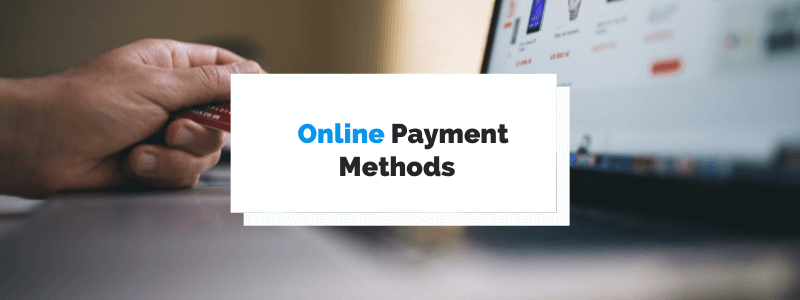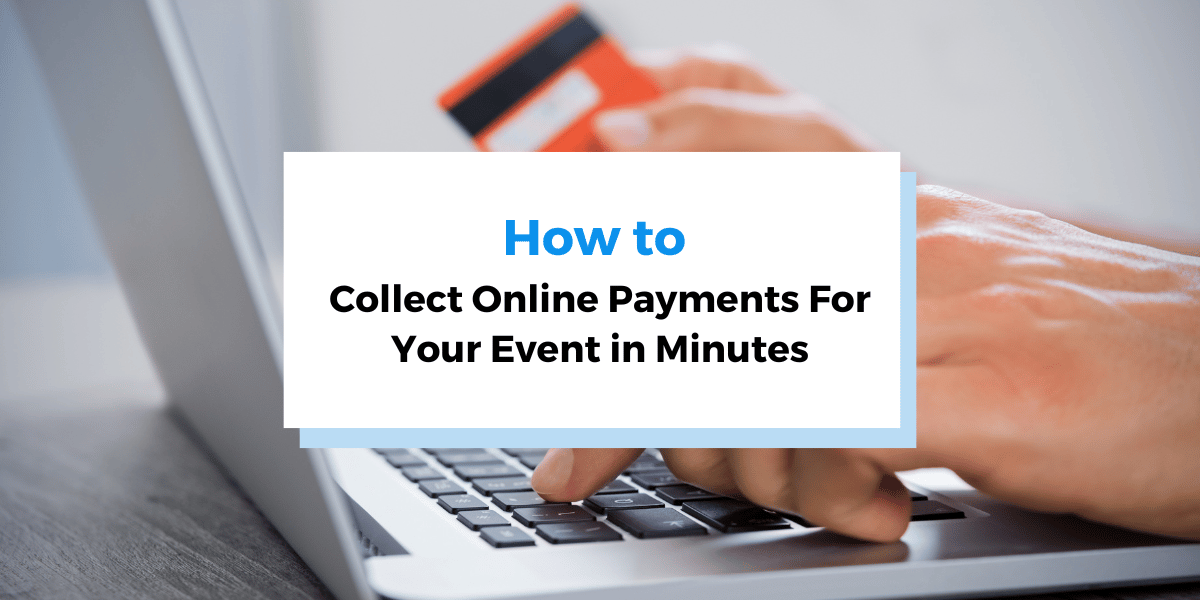As a business, your goal is to attract as many customers as possible. In addition to offering high-quality services, an excellent way to do it is to accept various payment methods.
Customers want a simple checkout process and they leave if their preferred method of payment is not available.
To help improve your conversion rates, we’ve curated a list of four online payment methods to diversify your payment options.
Recurring Billing
Recurring billing is a payment model in which a specific amount of money is transferred from the customer’s to the service provider’s account automatically and periodically (normally on a monthly or yearly basis).
It has been around for a long time (think of magazine subscriptions or season tickets at theaters), but the relatively recent success of subscription-based giants such as Netflix or Spotify really pushed it to a new level.
According to Zuora’s Subscription Economy Index (SEI) report, subscription economy has grown by a whopping 437% in less than a decade.
It’s a hassle-free method for customers to regularly get what they want, so the appeal is understandable.
A distinct advantage this model offers is faster payment.
Payment delays can happen due to multiple reasons, from people forgetting to pay their dues, to payments not being processed during the holidays.
With recurring billing, the process is automatic, so there’s no room for human or other errors.
You might be surprised to learn that customers seem to prefer faster payment, too.
ACI Speedpay Pulse study found that 46 percent of consumers check their payment source immediately to see if a payment has been processed.
We live in the age of instant gratification and that applies to payment as well.
Another thing is that it can boost your upselling potential.
As customers pay for your service on a recurring basis, they interact with it regularly, essentially building a relationship with your company.
Unlike one-time purchases, this relationship lasts, which means that it can be used over and over again.
This gives you an opportunity to identify their needs and offer a premium feature or functionality.
It benefits both parties because it provides a better experience for the customer and brings more revenue to your business.
Now that you’ve decided to introduce recurring billing, you should find a suitable billing platform.
Some of the most important boxes a good recurring billing solution needs to check are:
- Multiple payment types
- Secure payment
- Customization options
- Access to customer support
- Providing business intelligence
Regpack’s recurring billing software is completely customizable, has various reporting options and processes your customers’ payments in a secure way.
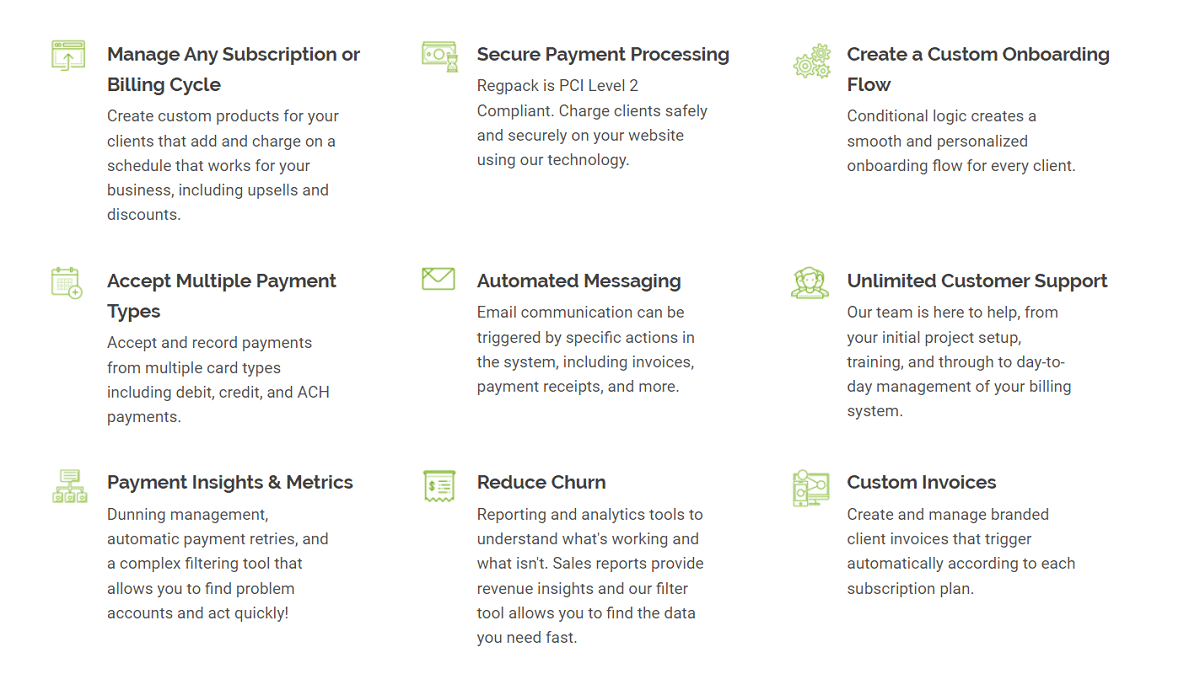
Source: Regpack
It can help you streamline your billing and save both time and money.
A good recurring billing software needs to fit your unique needs that depend on the size of your company, the type of services you offer and your client profile, so take your time to find the right one.
Cryptocurrency Payments
The age of crypto is upon us.
According to the Chainanalysis 2021 Geography of Cryptocurrency report, the global adoption of cryptocurrency has skyrocketed, growing by over 2300% since the end of 2019 and over 881% in 2020. It is possible to pay in such cryptocurrencies as bitcoin, ethereum, ath coin and other cryptocurrencies.
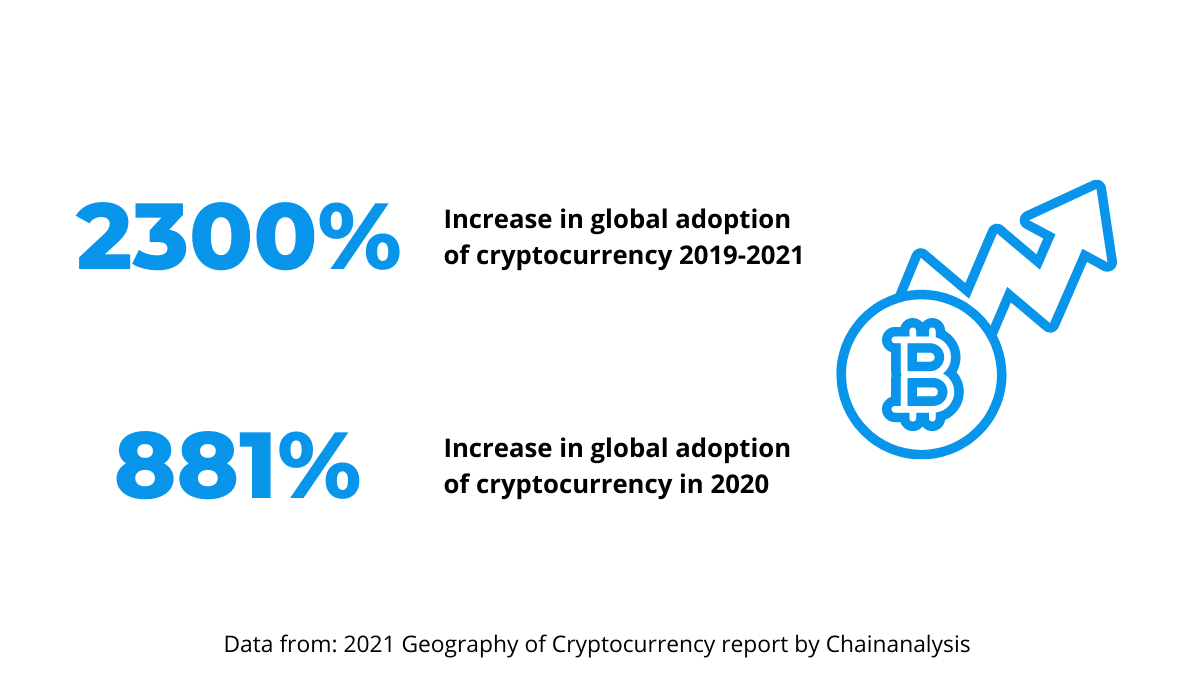
Source: Regpack
However, even though Carat’s research suggests that 34% of U.S. adults surveyed are interested in crypto, fewer than half of them (16%) actually used it as payment.
The discrepancy between demand and supply is driven equally by the lack of merchant acceptance and security concerns (mentioned by 25% of respondents each).
Still, it seems that big companies are getting on the crypto train, so you might want to consider following suit.
First of all, crypto transactions are more secure and with credit card-related fraud on the rise, it makes sense to consider alternative options.
Even the Biden administration has recognized the potential of crypto.
While cards require third-party authentication and the transaction has to go through a bank, paying by crypto is done directly from one computer on the crypto network to another.
Because the data is heavily encrypted and there is no third party, the possibility of fraud and data theft is minimal.
The buyer is the only one who can initiate payment in crypto payments, so buyers who distrust online transactions might feel safer knowing that all transactions are under their control.
Secondly, transaction fees are lower. In the USA, credit card companies charge between 1.3% and 3.5% per transaction, which is a significant amount, especially for small businesses.
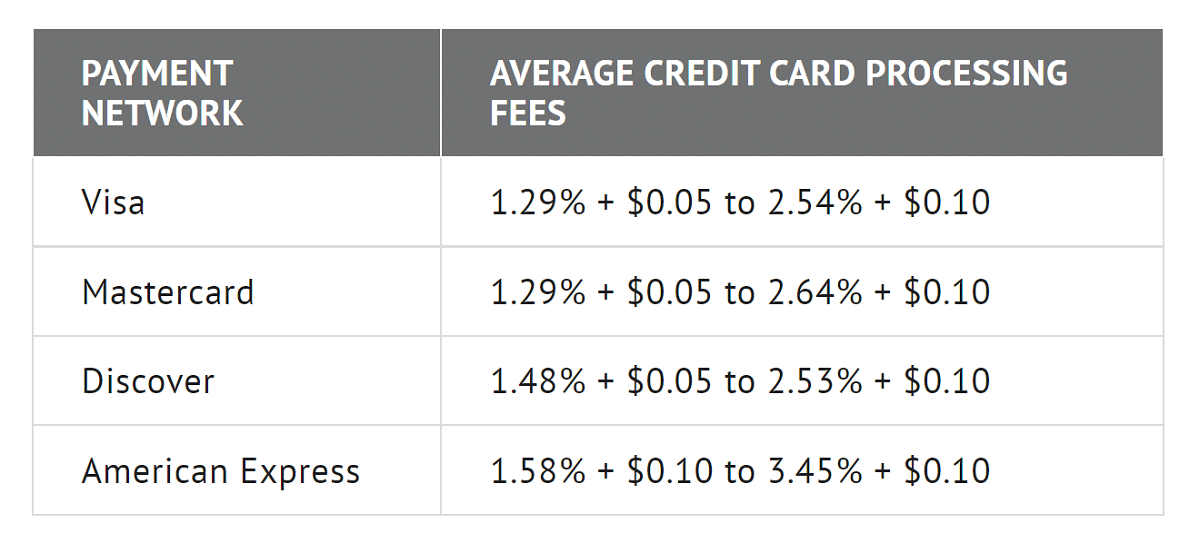
Source: The Ascent
On the other hand, Investopedia’s data shows that crypto fees are lower—normally less than 1%.

Source: Regpack
In some cases, there are no fees, which means you could save a substantial amount of money.
To get started with crypto, you need to choose between a crypto wallet and a crypto gateway.
Wallets are used for storing and using cryptocurrency, while a gateway converts crypto to traditional currency, like USD.
If you opt for a wallet, a good idea is to make sure that it’s a multi-cryptocurrency wallet.
That way, you will not be limited to a specific currency, therefore expanding your potential customer base.
Crypto gateways are useful because you are paid the market rate at the time of the transaction, so you don’t have to worry about market volatility.
However, they come with added currency conversion cost (up to 5%) and involve a third party, essentially defeating the purpose of crypto.
This next step is not needed if you choose a gateway, but if you want to avoid fees as much as possible, you can introduce peer-to-peer cryptocurrency transactions.
Peer-to-peer (P2P) exchange was how cryptocurrencies were originally meant to be shared, directly from one party to another.
You and the customer both need to have wallets.
You generate an “address” (a new one is typically generated for each new transaction) or a QR code from your wallet and send it to the customer, who confirms it by entering their “private key” (password).
You then wait a couple of minutes for the transaction to be entered into the so-called “public ledger” (a record-keeping system) and then the transaction is complete.
Crypto transactions are a great option if you want a payment method that’s direct, final and buyer-initiated.
Online Payment Service Provider
A Payment Service Provider (PSP) is a third-party company that handles secure processing of various types of online payments (cards, e-wallets) for businesses.
It basically functions as one large bank account with sub-accounts for different clients.
The best thing about PSP is that it helps you reach more customers.
According to Statista, one of the most popular PSPs, PayPal, processed around 5.34 billion payments in Q4 of 2021, representing a 21-percent increase compared to the same period in 2020.
Their payment volume came to USD 936 billion in 2020 and they had 426 million active user accounts worldwide. And that’s only one PSP!
As PSPs accept multiple currencies and payment methods, there’s no obstacle to anyone in the world accessing your services. This gives you a great opportunity to scale your business.
Quick and easy setup is another major advantage. Everything is done online and unlike banks, there is no lengthy verification process.
A hosted payment solution (integrating an HTML code into your website that redirects customers to a page for secure payment) is the simplest solution.
It works well both for small businesses that are just starting and big companies selling large quantities.
With a variety of PSPs to choose from, finding the one that works best for you might seem daunting. The best way to start is to make sure it’s PCI compliant.
Payment Card Industry Data Security Standard (PCI DSS) compliance is a set of security standards by major credit card companies that protects your clients’ data.
It involves the following 12 requirements:
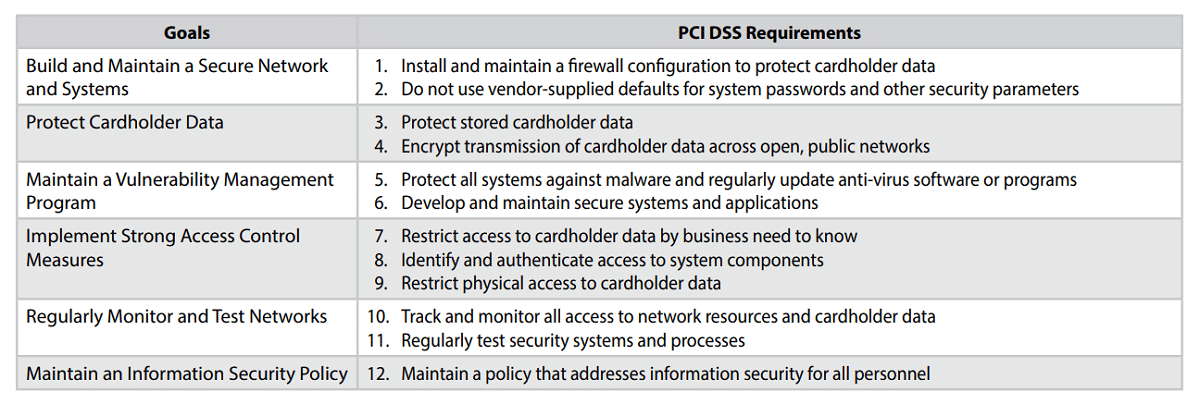
Source: PCI Security Standards Council
Next, check the level of support you can expect. Not offering proper customer support is one of the biggest mistakes a provider can make.
You will invest time and money in something that you’re not completely familiar with, so issues are bound to arise.
Having comprehensive guidelines is great, but what will you do when something outside the rulebook happens?
This is why customer support needs to be available to solve problems and answer questions quickly.
A good provider should offer:
- Interaction with a person, preferably a dedicated account manager with service expertise
- Quick response time
- Various contact methods (email, phone, live chat)
- A ticketing system
Making sure that your customers’ data are secure and offering comprehensive customer support shows that you care about your clients.
They will feel appreciated and continue using your services for a long time.
eChecks
As the name suggests, eChecks are checks in digital form that are processed by the Automated Clearing House (ACH) network.
Paying with an eCheck is the same as paying with a paper one, but everything is done digitally: the customer authorizes payment, which travels through the ACH network from the customer’s bank account to the seller’s, where it’s deposited.
One of the main reasons for using eChecks is that the ACH network is growing.
Its governing body, National Automated Clearing House Association (NACHA) reported a 15.5-percent increase in B2B volume in the first quarter of 2022, compared to the same period in 2021.
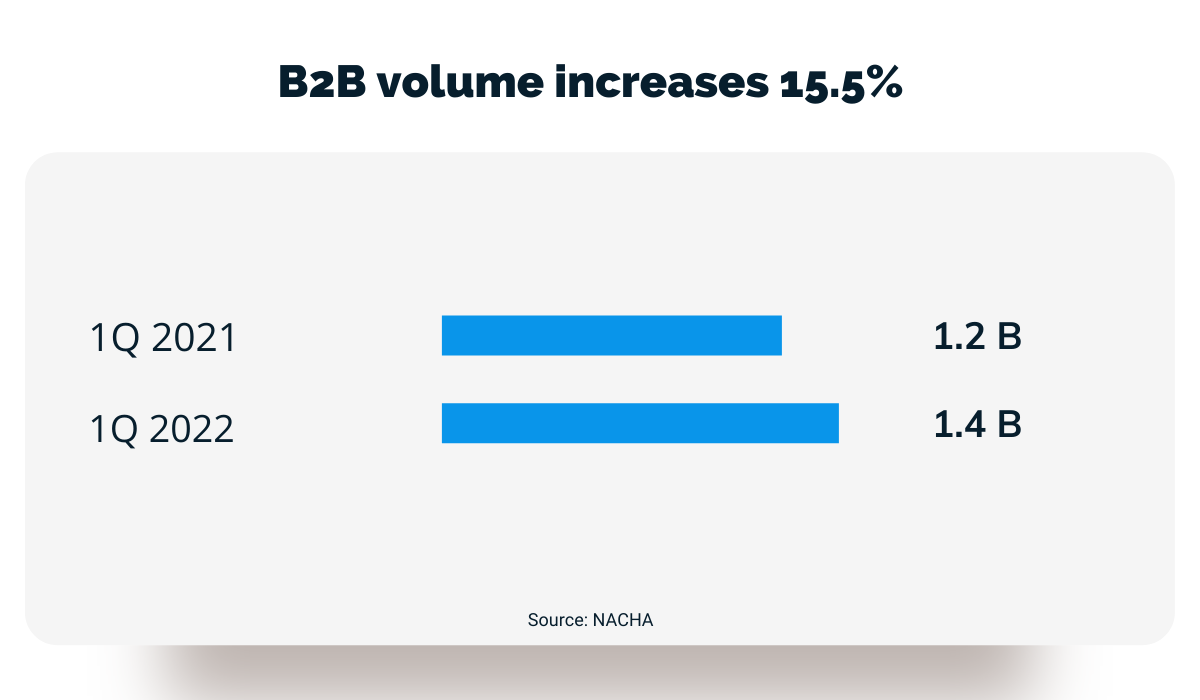
Source: NACHA
Moreover, the dollar value of ACH payments has nearly doubled in less than a decade, from a little over USD 36 trillion in 2012, to USD 72 trillion in 2021.
eChecks also lead to a better cash flow. While traditional checks can take up to 10 days to arrive, their electronic versions can now be processed in 24 hours.
As payments come faster, you can use them to cover operating costs or pay for outstanding expenses.
QuickBooks survey of 3,500 small businesses found that 60% of small businesses have experienced a cash flow issue and it had a negative impact on their business for 89% of them.
A good cash flow is crucial for day-to-day business, as well as for future plans and growth, so it’s a good idea to do your best to keep it steady.
To get started with eChecks, you need to set up a merchant account, a business bank account that allows you to accept online payments.
To open one online, you should compare options offered by various providers and their fees.
You then need to upload a business license and some supporting documents, select the service you want, complete an online application and go through an underwriting process.
The next step is to find an eCheck service. It should be a reputable payment processing provider offering many secure payment options that are as simple for the buyer.
Some good options include Payment Cloud, National Processing, Regpack, Square and Stripe.
With a little bit of research, you’ll find the one that’s best for your industry and company profile and that doesn’t cost an arm and a leg.
Accepting eChecks as payment means having access to a pool of potential customers that has been growing steadily over the past decade, so it’s definitely an avenue worth exploring.
Conclusion
More money doesn’t have to mean more problems if you make sure to accommodate different payment preferences.
If you’re looking to please more traditional customers, try eChecks, while your Gen Zers will like the fact that you accept crypto.
Recurring billing is a no-fuss method for customers to get a service they want on a regular basis and having an online payment service provider will help you reach a huge customer base worldwide.
Either way, you can’t go wrong with any of the methods we’ve listed because each new option you choose adds value, improves customer experience and ultimately drives conversions.


